The three-color method of using colored lens filters when shooting black-and-white photos was one of the earliest techniques for creating color photos. This 11.5-minute video is an exploration of how this process is done.
The video was created by Mike Elsherif and JohnBen Lacy of Clovehitch Productions.
“The video is a photographic inquiry to see if full-color photographs can be produced using only black and white film,” Elsherif tells PetaPixel. “The educational video utilizes imaginative visuals, humor, and inventive editing to lend a sense of style to an otherwise didactic format.”
The video starts off by explaining color theory and how red, green, and blue channels form the basis of digital photography. And since digital photos can be separated into three black-and-white color channel components, the idea of the experiment is to see whether this process can be reversed: combining three black-and-white photos to create a color image.
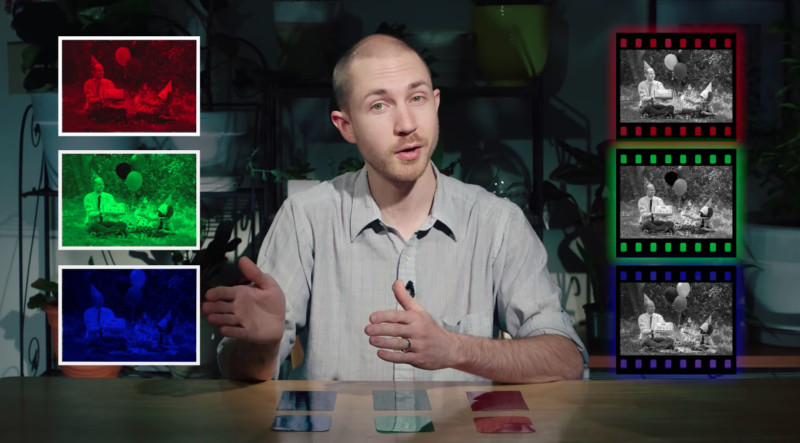
Equipment-wise, the duo used a Canon 35mm SLR camera, RGB color gels, and Kodak Tri-X 400 B&W negative film.
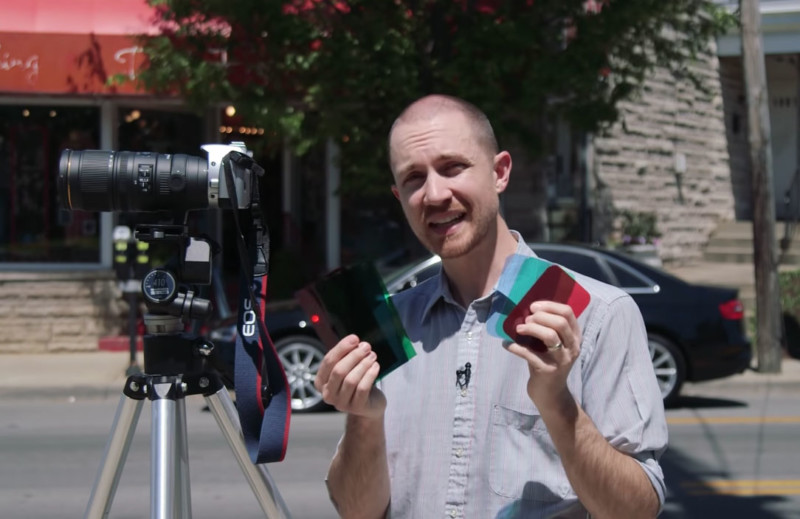
They then went around town and captured various scenes, shooting a photo through each filter color without moving the camera.
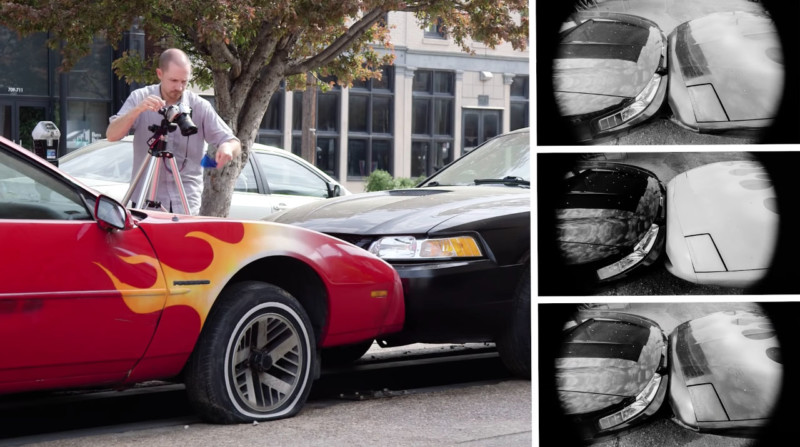
After processing and scanning the film, the digital work begins. In Photoshop, all you need to do is load the red, green, and blue filtered photos into the red, green, and blue channels, respectively, and then take a look at the RGB color version that combines all three channels (if there’s a strong color cast, some further adjustments may be necessary).
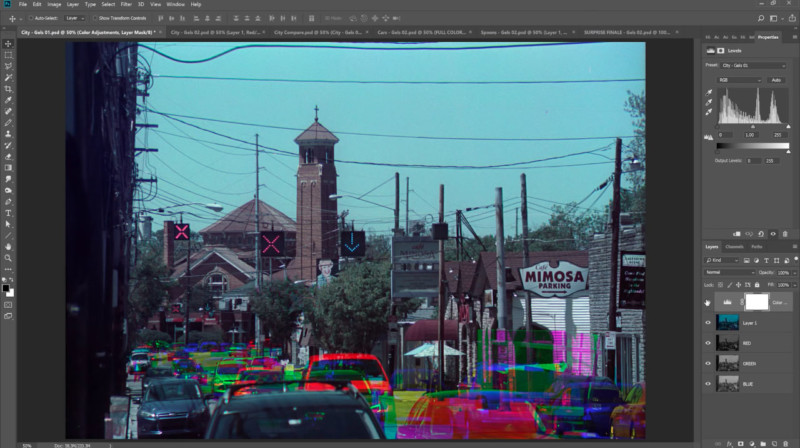
If there are moving subjects in the shots, as there were in the above photos, then they’ll show up as red, green, and blue “ghosts.” And you might not even notice the movement in your scene — even reflections of clouds can move enough between shots to create color shifts:
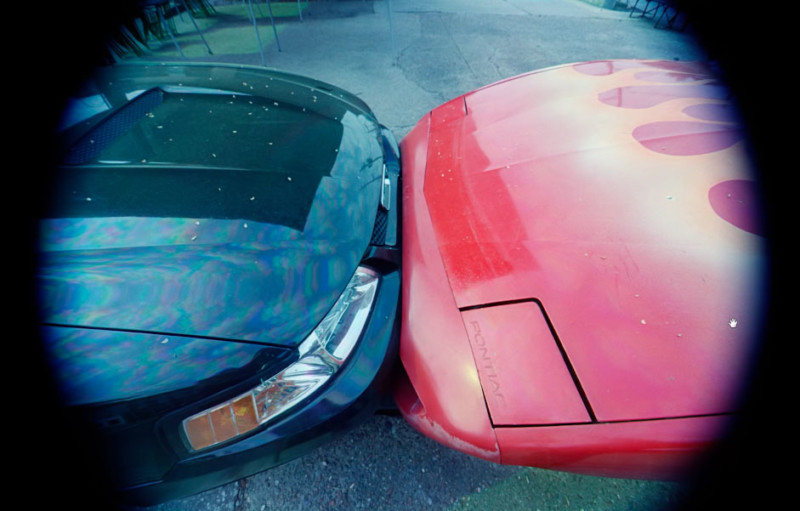
So for “normal” color photos using this three-color method, you’ll want to stick with static subjects and scenes.
Watch the full video above for the full walkthrough and to see the color photos that resulted.
“I conclude that this experiment was a success,” Lacy says. “It’s pretty amazing that you can create color using only black and white images. What’s even more amazing is that this technique dates back to 1861.”